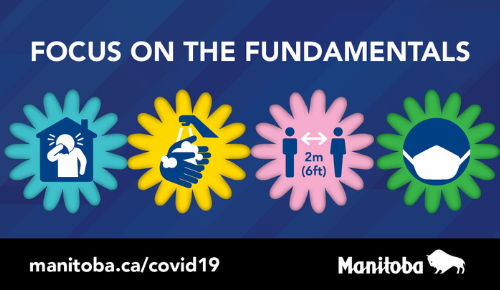
Whether you’re looking to grow a team that’s rooted in a single location or collaborates from all across the country, finding a complementary candidate is critical. Effective interviewing not only allows leaders to assess whether or not a potential new team member has the knowledge, interpersonal skills and integrity to make a positive impact; it also empowers the candidate with a clear picture of the organization’s culture and values so they can make an informed decision for themselves.
Remote interviews (by phone or video chat) were once considered a pale comparison to in-person discussions for this mutual evaluation. But since the rise of pandemic-driven social distancing, they’ve not only become a necessity; they’ve forced HR professionals to get creative and have inspired more intentional communication on both sides.
Here are four ways to optimize remote interviews for your own team and your potential hires:
1.Be deliberate in establishing interview structure and tone within your own team before the interview process begins.
Gone are the days when a subtle eyebrow raise or pen tap could signal to your colleague that it’s time to switch gears. We don’t realize how dependent we are on body language for communication until we can’t rely on it anymore!
Instead, meet with the colleagues that will be participating in the interview beforehand to make a detailed plan. Who will be in charge of ice-breaking and tone-setting? Who will ask the candidate which questions? Who will signal that the conversation is transitioning to the next topic or ending altogether? Establishing these points upfront will ensure a more effective conversation for both your own team and the interviewee.
And once you’ve confirmed who will be in the (virtual) room, don’t forget to communicate that information to your candidate pre-interview so they can feel prepared as well!
2. Embrace the new insights that video conferencing can offer.
There’s an innate awkwardness to video conferencing. Audio and visual might not be fully in sync, leading to participants constantly cutting each other off (“oh, sorry, go ahead”). The setting can be unfocused – after all, how many in-person interviews feature a cameo by a preschooler wandering in and asking for a snack? And your go-to interview wear can feel semi-ridiculous at your kitchen table.
Rather than pretending these challenges don’t exist, see them as an opportunity to evaluate candidates in new ways. While body language is more difficult to glean when you’re not in the same room, you can get a sense of the interviewee’s flexibility and adaptability by their willingness to leverage the meeting’s potentially unfamiliar technology. There may be no traffic on which to blame a late start anymore, but does the candidate demonstrate good organizational skills by not only connecting on time but also showing that they’ve cleaned up their interview space, tested their audio, etc. before the meeting begins? And when inevitable snafus or interruptions happen, do they demonstrate problem-solving skills and a sense of humour, or do they get overwhelmed and flustered?
These “soft skills” are especially essential in circumstances where remote interviewing precedes remote work and remote team building. It’s important to evaluate how well a potential hire will likely adjust to virtual onboarding, how they independently manage priorities and how easily they might connect with the team already in place.
While there is admittedly information lost by not being in the same room, there are also new insights to be gained.

3. Find creative ways to describe and demonstrate corporate culture.
One of the best parts of an in-person interview from the candidate’s perspective is that it provides a sneak preview of what life might look like for them as a member of your organization. Everything from experiencing what would eventually be their daily commute and assessing nearby amenities, to observing staff interactions while they wait in the lobby before the interview begins, to glimpsing the space where they’d perform their duties makes a (hopefully positive) first impression and gives them a sense of whether or not they’d like to join the team. And without those clues, it can be a lot harder for a potential hire to feel confident in their decision.
In a remote interview setting, it’s up to employers to find new ways of directly communicating information about the culture of the organization. The first thing an applicant is likely going to do is take a look at your company’s website and social media accounts – do they give a robust and accurate look at what everyday life at your company would be like? How about the job posting – is the language and tone reflective of your organizational culture? Don’t hesitate to engage your Marketing team or a third-party brand consultant to ensure you’re telling the real story about yourselves.
And make sure to set aside time in the interview to not only chat about the job itself but also outline and demonstrate through your interactions the culture of the organization as a whole.
4. Focus on candidate engagement and experience.
Be intentional about making yourself available and maintaining ongoing, consistent communication with the candidate – building a connection and trust is key to creating engagement and should start from the first impression stage on-wards! Recruitment isn’t just about hiring; it’s about understanding and encouraging the unique contributions each individual can make to make a stronger organization overall.
There are also several positives to remote interviews! They’re flexible and time-efficient; they require and ultimately foster stronger communication skills that can be applied across the board; and once their viability has been proven within your organization, they can save both travel time and money, as you may choose to lean on video interviews in the future rather than travelling to interview someone outside of your own region (in the case of a national organization).
With keen preparation and fresh expectations, remote interviews can be a highly effective way to grow your team.
By Millena Lazareti
About the Author: Millena Lazareti, Human Resources Specialist, Recruitment & Retention at Payworks. Millena joined Payworks’ HR team in 2019, bringing several years of recruitment-focused HR experience in both Canada and Brazil to her current role, where she provides both career and holistic wellness support to Payworks’ employees.




